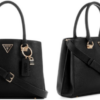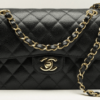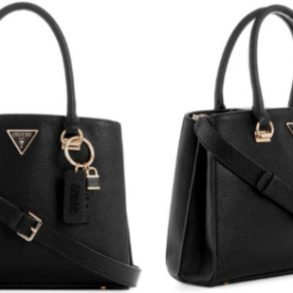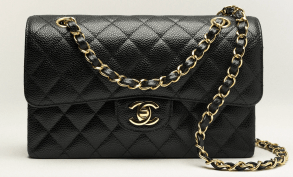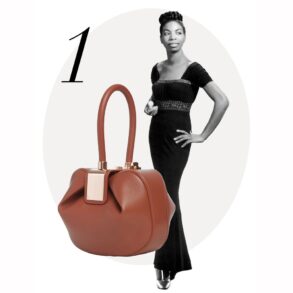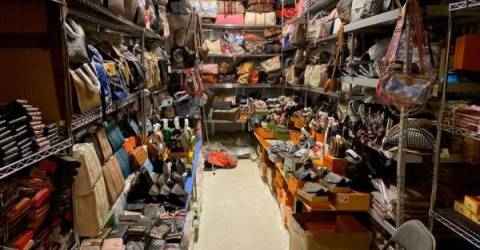
At first glance, the photograph seems to represent any other small clothing and accessories store in New York. There are a series of multi-colored handbags, tote bags, chequered backpacks, and wallets, all stacked up and loosely arranged in rows on metallic shelves. Some feature monograms of popular luxury labels, like Louis Vuitton, Christian Dior, Gucci, and Marc Jacobs, and others have a plain surface devoid of brands. Upon closer inspection, though, you’ll realize you’re looking at a photograph of a storage facility in Manhattan that New York’s law enforcement authorities claim has been used to stock up on approximately 219,000 knock-offs. These fake products are estimated to be $1 billion in retail value, making this one of the “largest-ever seizures of this kind,” according to federal prosecutors.
On Wednesday, the New York Police Department (NYPD) arrested Adama Sow, 38, and Abdulai Jalloh,48, also known as “Troy Banks,” for trafficking counterfeit goods. The two suspects were indicted and presented before U.S. Magistrate Judge Robert W. Lehrburger on the same day, according to a press release shared by the U.S. Attorney’s Office for the Southern District of New York. The release also states that the two accused have been running a counterfeit goods trafficking operation since at least January 2023.
“As alleged, the defendants used a Manhattan storage facility as a distribution center for massive amounts of knock-off designer goods,” U.S. Attorney Damian Williams said in a statement. “The seizures announced today consist of merchandise with over a billion dollars in estimated retail value, the largest-ever seizure of counterfeit goods in U.S. history. This is a testament to the commitment of this Office and its law enforcement partners to combat counterfeit trafficking in New York City.”
Both Sow and Jalloh operated a large-scale scam from two locations in New York. At Jalloh’s offsite location, the police seized over 83,000 fake items that would’ve been worth approximately $502 million if they were real and 50,000 counterfeit items from Soh’s facility, which were roughly $237 million. The two could face up to 10 years in prison if convicted.
Selling knock-off designer goods has been a staple part of New York City’s underground shopping experience for a long time, with several shoppers seeking inexpensive fakes that replicate the original but cost much less.
Typically, counterfeit items are sold at a substantially lower cost than their authentic counterparts in the market. New York’s Canal Street has long been the infamous counterfeit market and a go-to place for shopping for designer fakes. In recent years, though, law enforcement officials, in collaboration with Home Land Security agents and investigators from luxury brands, have been aggressively cracking down on counterfeiting. According to CBP data, in 2022, over 24.5 million shipments of counterfeit products were seized nationwide. Amongst them, the most commonly found fake products were handbags, wallets, apparel, jewelry, and consumer electronics.
”The trafficking of counterfeit goods is anything but a victimless crime because it harms legitimate businesses, governments, and consumers,” New York Police Department Commissioner Edward Caban said in a statement Wednesday.
This post was originally published on this site be sure to check out more of their content.

